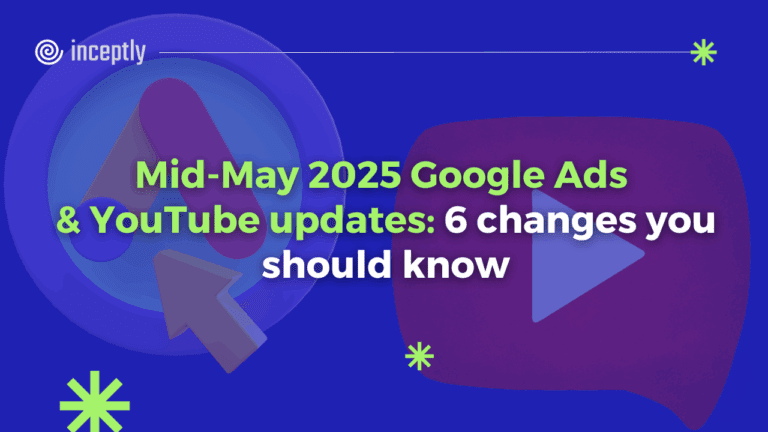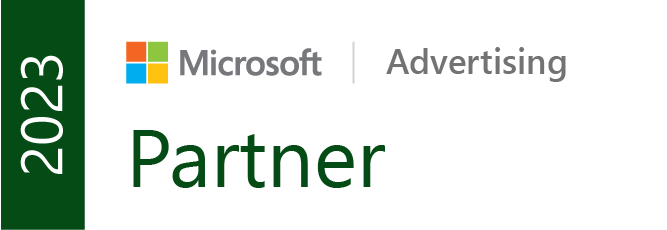
Hey YouTube performance marketing specialists 👋
The first half of May came in hot with six key updates that directly affect how we track, optimize, and run YouTube, Demand Gen, and Search campaigns. From expanded PMax controls to a brand-new AI-powered bidding system, Google is pushing hard on automation and creative flexibility.
Here’s a quick breakdown of what’s new and what it means for your campaigns 👇
Want to brainstorm with our team on new ways to scale your business with YouTube Ads (and other performance video platforms)?
Join us for a free YouTube ad brainstorming session👇
1. Tag gateway is live – Here’s why it matters
Google’s new “Tag Gateway” lets advertisers route tags through their own servers or CDNs—think Cloudflare or Google Cloud. Why? To get more accurate conversion tracking and increase control over your first-party data.
🔐 Key benefits:
~11% boost in signal strength (Google’s own data)
More resilient attribution tracking across web, app, and offline
Zero code changes required for setup
TL;DR: If you’re serious about measurement and data privacy, this is a big one. Worth talking to your dev team ASAP.
2. AI Max is coming – And it could reshape Search campaigns
“AI Max” is Google’s new term for a next-gen bidding system powered entirely by generative AI. It’s like Performance Max—but for Search.
⚡ What makes it different:
Ad copy is dynamically generated based on intent (you just upload assets)
Targeting is completely automated — no keywords or audience signals
Early access advertisers report 25–35% lower CPA vs. legacy Search campaigns
We’re still testing, but if this rolls out widely, it could make traditional keyword-based campaigns obsolete in the next 12–18 months.
3. YouTube ads: New non-skippable combo format
YouTube is testing a new format that combines 6-second + 15-second non-skippable ads in a single placement. This combo plays back-to-back and is designed to deliver higher recall without needing longer-form ads.
📺 What to know:
Placement is automatic—advertisers don’t manually select the 6+15 combo
Creatives must follow standard non-skippable specs
This format is geared toward top-of-funnel campaigns
If you’re running brand-focused or “quick hook” creatives, this could be a nice edge—especially with Shorts-style assets.
4. Google Ads API gets renamed + v2025 rollout begins
Google is changing its API versioning system from vX (e.g., v14, v15) to a year-based format—starting with v2025 this month.
Why it matters:
If you use scripts or custom tools, expect deprecations in July
The new version brings better support for asset groups and PMax reporting
Bulk asset management gets more flexible
Make sure your dev teams are aware of this shift to avoid any disruptions in your reporting or campaign sync tools.
5. Vertical 9:16 images are now supported in Demand Gen – Even on YouTube Shorts
This one’s a creative win: vertical 9:16 image formats can now serve in Demand Gen campaigns—including on YouTube Shorts.
Why that’s huge:
You can now repurpose high-performing Instagram Story creatives into Shorts ad inventory
Better fit = more visual real estate = higher engagement
Early adopters are seeing CTR boosts of 20%+
If you haven’t already, start resizing top creatives to vertical and test this placement.
6. Device targeting is finally available in Performance Max
It’s official: you can now apply device-level bid adjustments in PMax campaigns. That includes separate targeting logic for mobile, desktop, and tablet.
This has been one of the most requested features for years, and it’s finally here.
💥 Action ideas:
Want to isolate mobile buyers? Raise mobile bids.
Want to lower CPA on desktop? Add negative adjustments.
Need to control CTV inventory in PMax? This is your workaround.
🧠 Final take: What this means for advertisers
May’s first wave of updates tells us two things:
Google wants more automation, especially with bidding (AI Max), creative assembly (vertical images, Shorts), and campaign setup (Search without keywords).
Advertisers are getting more control where it matters most—like tagging, attribution, and PMax device targeting.
Keep testing early. The advertisers who adopt new formats and settings first usually win the auction—and the conversions.
Until next time,
The Inceptly Team
Want to brainstorm with our team on new ways to scale your business with YouTube Ads (and other performance video platforms)?
Join us for a free YouTube ad brainstorming session👇
Want more content like this?
Don’t miss out on the latest news and updates from the world of Direct Response advertising! Subscribe to our newsletter today 👇
Like this post? Let's continue the conversation!
Get in touch with us by shooting us a quick email or tagging us on LinkedIn or Instagram, and sharing your thoughts. Your feedback helps us keep our blog relevant and interesting.
Get Our Newsletter
Need Help?
Get in touch with us for an insightful evaluation of your ads + actionable tips to help amp up your direct response revenue



